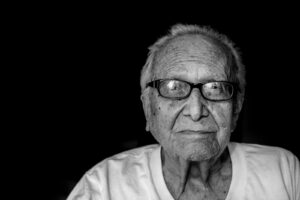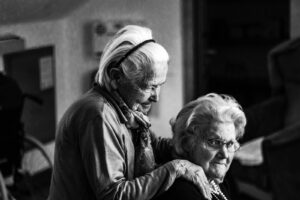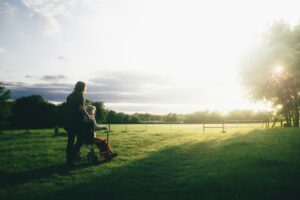Those in the North in their 50s and 60s are also, on average, more likely to have three or more long-term health conditions than those in the South.
One in five 50-64 year-olds in Tees Valley and Durham have three or more such conditions, compared to less than one in ten of those living in Berkshire, Buckinghamshire and Oxfordshire.
Broken down further, the inequalities are even starker; people who live in the wealthiest areas have almost twice as many years of disability-free life ahead of them at 65 than those living in the poorest areas.
And the picture is worse for younger generations, with today’s baby girls born in Blackpool set to have just 53 years of disability-free life, compared to almost 70 years for girls born in Waltham Forest.

Anna Dixon, chief executive at the Centre for Ageing Better, said: ‘In recent years we have made great progress in reducing pensioner poverty, increasing life expectancy and improving health. But not all places have seen the benefit of these gains and too many people have been left behind.
‘The COVID-19 pandemic has worsened these already shocking inequalities, with those in poor health hit harder and those who are poorer less able to recover financially from the impact of the crisis.
‘If we continue on our current path, the gap between those who are able to enjoy later life and those who struggle through it will be even wider for future generations than it is for the present one.
‘Now more than ever we need the government to reaffirm its active commitment to ensuring people can enjoy five more healthy, independent years of life by 2035, while narrowing the gap between the experience of the richest and the poorest across our nation.’
Without action, regional and economic inequalities in later life will deepen in the years to come, and many of those in mid-life are on a path to poverty and ill-health in retirement.
They say that with a greater burden of ill-health on the poorest in society, it is the poorest who will suffer most from the delays in diagnosis and treatment of health conditions that have resulted from the pandemic.
This means the coming years may bring not only a further reduction in disability-free life expectancy overall but a larger gap between the richest and poorest.
CAB is calling for urgent action by national and local governments, businesses and the voluntary sector to address the gap in disability-free life expectancy and to enable all of us to live longer healthier lives.
Cllr Ian Hudspeth, chairman of the Local Government Association’s community wellbeing board, said council play an important role in improving people’s health.
‘This latest report is another important warning that the impact of coronavirus could have far-reaching consequences for everyone, from all ages and backgrounds.
‘Councils play a crucial role in improving and maintaining their residents’ health and wellbeing, including for older people.
‘During this incredibly difficult period, councils want to continue doing all they can to ensure our older people have access to the health and care services, housing, employment and other support they need, including to address loneliness and social isolation.
‘We need a new national focus on helping everyone stay well, physically and mentally, including those affected by COVID-19.
‘The upcoming Spending Review is an opportunity for government to invest in these valued council-run services, to meet existing, new and unmet demand caused by the pandemic.’
Photo Credit -Pixabay
















